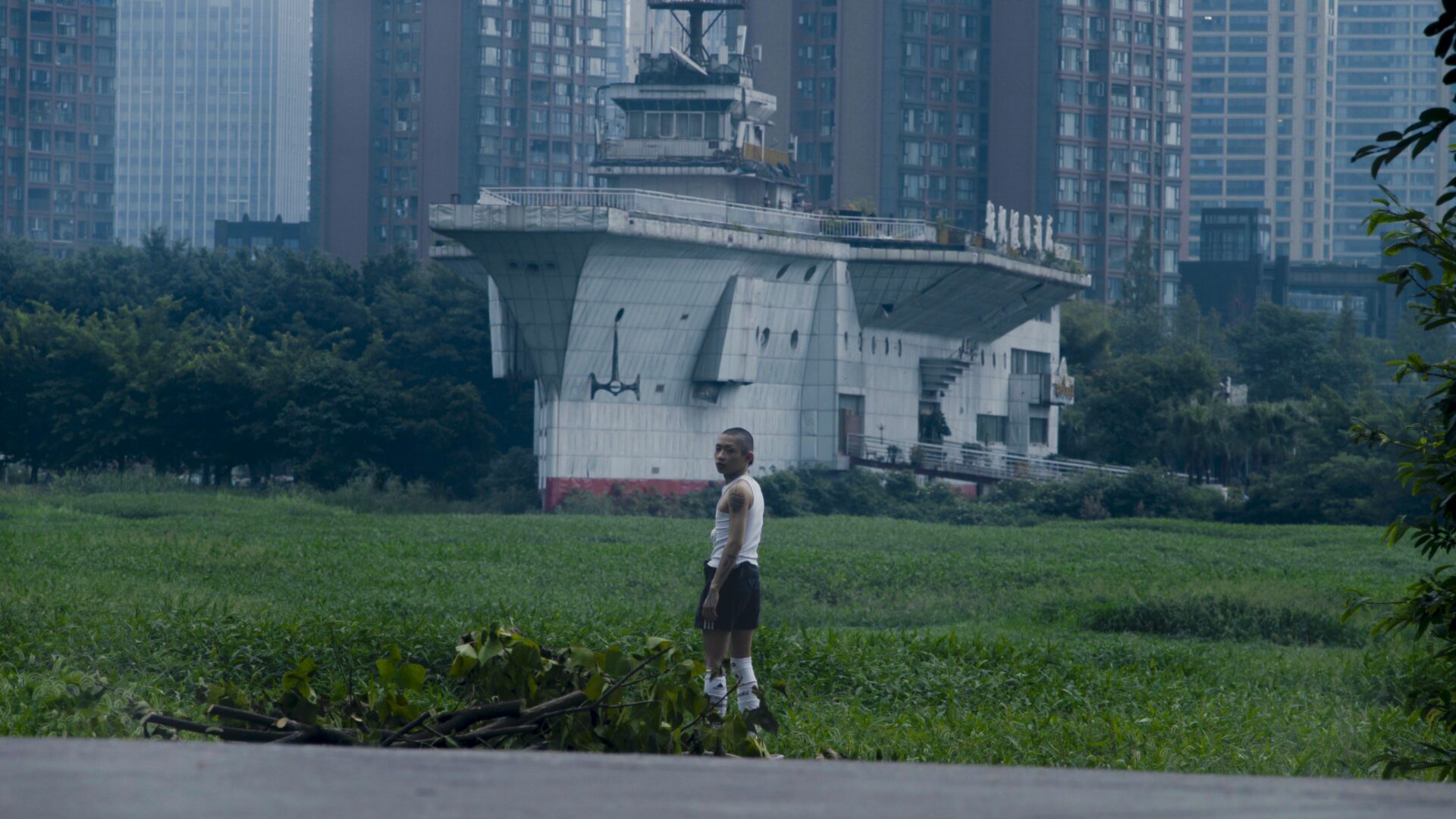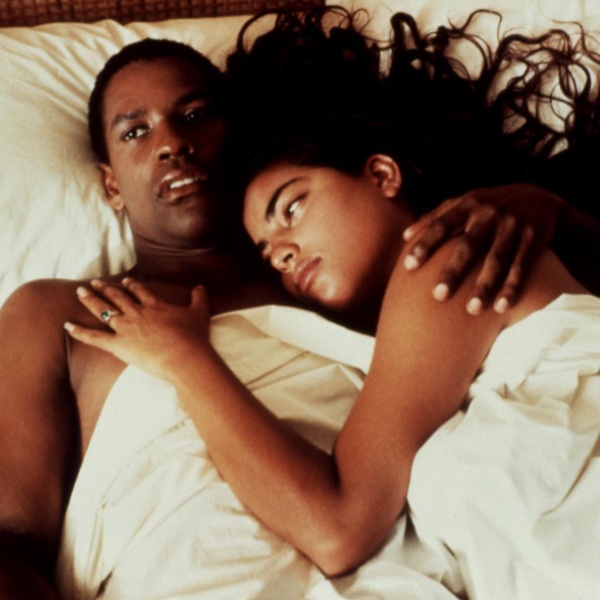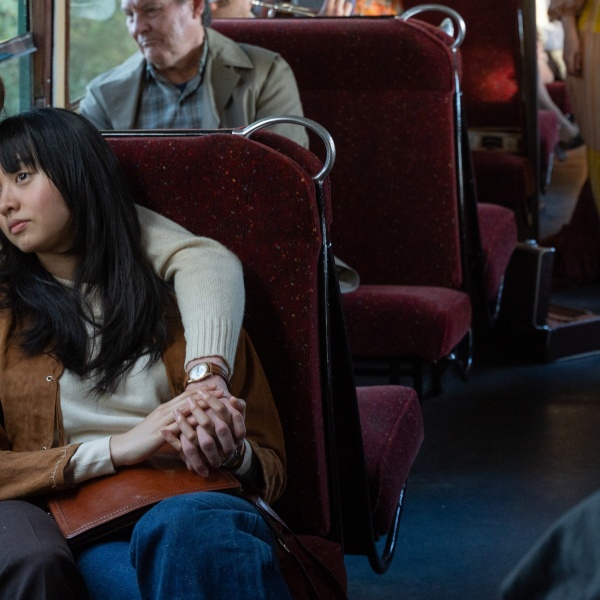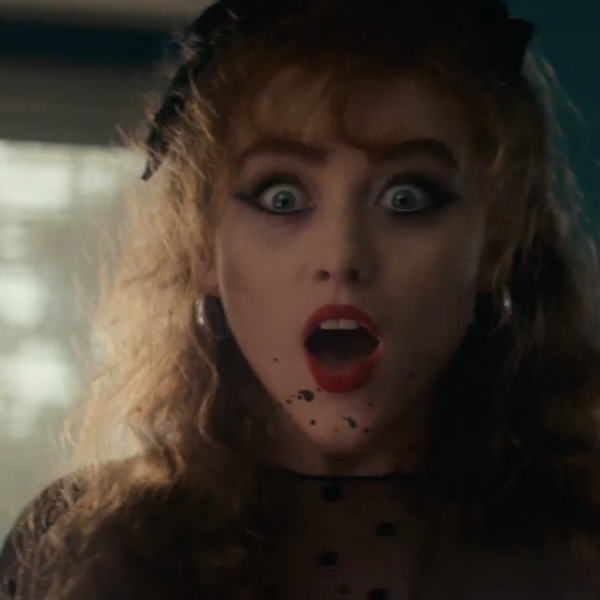
Darkness isn’t to be feared. It’s where daytime struggles melt away, and where the irresistible pull of neon lights and a throbbing bass can free you from uncertainty — if just for a night. But what happens when the outside world encroaches and the vital release of that escape is suddenly under threat?
American director Ben Mullinkosson started filming “The Last Year of Darkness” to document the lives of his friends, a ragtag assortment of DJs, ravers, drag performers and skaters who all found themselves and each other in the pulsating world of Funky Town, a queer underground club hidden away in Chengdu. Shot across five years and distilled from 600 hours of footage, Mullinkosson’s second feature intimately captures the euphoric joy of China’s alternative club scene, a place where outsiders, and queer people especially, can be who they want to be. And yet the end result is so much more than just a mere rave documentary.
Thanks to his personal connection with each of the five main subjects (Yihao, Kimberley, 647, Gennady Baranov and Darkle Chan), Mullinkosson’s camera is just as privy to their real lives in the daytime as he is their dream world at night. But when news that a metro station being built nearby will soon signal the demise of this group’s safe haven, daytime problems like money worries and family strife become even harder to bear.
“From throwing up to growing up,” “The Last Year of Darkness” doesn’t hold back from the painful reality of life for these twenty-something misfits who are coming of age in a world where financial and mental health struggles can be overwhelming, especially for those who don’t feel like they belong in the first place. Midway through, the skater/musician nicknamed 647 casually recounts his parental trauma to the camera while sitting outside Funky Town, while drag performer Yihao laments their chosen career towards the end of the film, saying heartbreaking things like: “Doing drag will give you AIDS, which will make your life miserable. It will also make your family not understand you, and people around you will not support you.”
Yet there is light to be found still in this last year of darkness. Through confessing his pain openly with both friends and the camera alike, 647 grows thankful for everything he’s endured because it’s made him who he is today. Yihao also comes alive on stage throughout the film, exploring their queerness without shame or restraint. It’s in moments like these where the sanctity of a place as special as Funky Town is underlined, especially for queer patrons and doubly so for those who live in a country like China where extra tensions are systemically built into the world around them.
“The Last Year of Darkness” is a neon-drenched love letter to the Chengdu party scene in that regard, one which dances between joy and uncertainty without ever taking itself too seriously. Case in point, the scene when two partygoers chat about meditation while a girl casually throws up in front of them. Resident DJ Gennady Baranov — a charming, sexually ambiguous Russian expat — also amuses when he uses two phones at once to maximize his chances of hooking up on Tinder. But the biggest laugh comes later with the line, “I’m so grateful that I’ve sucked so many dicks… I don’t even remember how many,” which is spontaneously delivered with an almost professional level of deadpan sincerity.
There’s something about that time in your early twenties when vomiting and regretful hookups align with profound realizations about the world’s complexity and your place within that. “The Last Year of Darkness” brilliantly encapsulates that feeling whether we’re watching people try on party outfits, getting ready to hit the club, or whether they’re arguing with friends on a rooftop as the night ends and the day begins. The lack of a clear narrative throughline further enhances that universal notion of enjoying chaos as an escape from the mundane. Narration comes from real conversations rather than an overhead speaker, like the snippets you hear while lined up for the toilet or hanging outside with new friends in the smoking area. It bonds not just the characters within the film, but also us as a collective whole, as if we too partied with these delightful deviants until the early hours for days and even weeks on end.
“The Last Year of Darkness” looks far better than you might expect though from your own hazy recollections of that pivotal time in a young person’s life. The rave scenes, a notoriously difficult experience to capture well on film, fully immerse the viewer with a hypnotic pull. And beyond the allure of Funky Town’s pulsing dancefloor, the city of Chengdu itself also transforms into a thing of beauty, an urban warren of striking Stalinist architecture that’s oppressive yet also freeing in the possibilities that lie tucked away in every tower block or hidden behind every alley. Mullinkosson’s background in music videos and Sundance-nominated commercials is evident in every frame, even when the steel construction work outside Funky Town looms as a portent of disaster.
This precision extends to everything from the outfits worn to the “performances” on display as each so-called “character” — a personal friend of the director — has agency to act in a certain way knowing that they’re on camera the whole time. This collaborative approach ensures that even the rawest, most vulnerable moments depicted don’t feel exploitative, even if they have the potential to toe that line. Some real stories are recreated and Mullinkosson even hired actors at certain points to simulate his friend’s lived experiences, which calls into question the extent to which this film can even be called a documentary. It’s simultaneously candid and also staged in a way that plays with form by straddling realism and fiction. Yet that doesn’t detract from the personal nature of the story Mullinkosson tells, and it doesn’t detract from the film’s political power either.
By choosing to avoid any specific reference to China’s government and the oppressive laws that impact people like the characters in this film, Mullinkosson is actually saying a great deal. Because in a world where most media actively criticizes China or others its culture in some fashion, this documentary’s focus on the very real people who live there and the relatable lives they lead is quietly revolutionary in of itself, especially when it comes to those whose very existence as queer Chinese people is subversive by default. That will be the lasting legacy of Funky Town, forever immortalized here now that the club itself is sadly no more.
Grade: A
“The Last Year of Darkness” will be available to stream on MUBI starting Friday, March 15.






